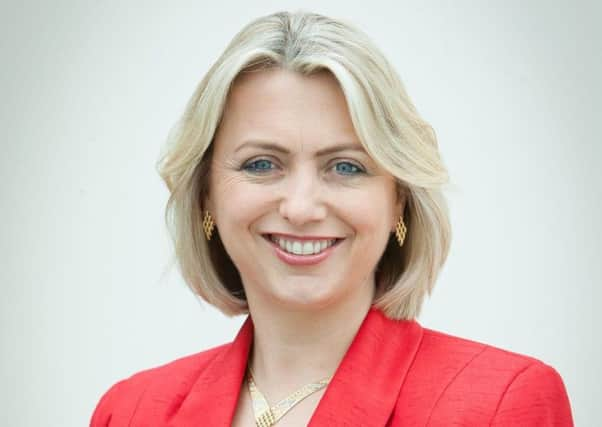GPs need access to database of social activities to help lonely patients, says top doctor


Professor Helen Stokes-Lampard, Chairwoman of the Royal College of GPs (RCGP) has called for more access to non-medical “social prescribing” to help lonely people.
Official statistics show that one in every 20 English adults feels lonely “often” or “always”.
Advertisement
Hide AdAdvertisement
Hide AdProfessor Stokes-Lampard said: “Loneliness is bad for your health. It’s as bad for your health as being significantly overweight or obese.
“Lonely people see their GP more because they have other health problems, but sometimes their GP is the only person they speak to, that’s why GPs are interested in loneliness.
“I’m not suggesting GPs can cure loneliness. We need to be there to be people’s doctors and have other people to sort out the loneliness so we can focus on disease.”
Previous research has suggested that every day a GP will see between one and five patients who are lonely.
Advertisement
Hide AdAdvertisement
Hide AdProfessor Stokes-Lampard continued: “From a GP’s point of view, once they’ve identified there is an issue, we need to send somebody somewhere for this to be tackled and their particular needs to be identified.
“This can be done through social prescribing.”
Walking groups, debt management advice and lifestyle classes are among the non-medical community services GPs send patients to as part of social prescribing.
Prof Stokes-Lampard said: “There are some fantastic initiatives already but we want this much more widely.
“For some people what they’ll need is a hand with debt counselling, for other people it will be a disease-specific charity - like a Parkinson’s charity. For others it will be purely social stuff like ‘Knit and Natter’ or Contact the Elderly or Silverline.
Advertisement
Hide AdAdvertisement
Hide Ad“For social prescribing we need access to up-to-date databases of what is out there.
“But this is patchy around the country, sometimes local councils run them, sometimes the NHS runs them but we need some sort of standardised way of doing it that is kept up to date. I propose a Wiki-style approach to doing it where organisations themselves contribute to the database - but it would need to be quality-assured. In this day and age, it should not be beyond the wit of man for us to do this.”
She was speaking after the RCGP launched a new manifesto which will seek to influence the government’s approach to tackling loneliness.
It calls for a widespread campaign to educate the public and to encourage people to help their neighbours and strengthen social connections throughout communities.
Advertisement
Hide AdAdvertisement
Hide AdThe Royal College met with charities, community, voluntary and faith organisations to discuss how to tackle the loneliness epidemic sweeping Britain.
Prof Stokes-Lampard said a high-profile awareness campaign was also needed.
She said: “We could do it as a public health campaign.
“We do things when there is a cold snap and we encourage people to check on the elderly or for flu vaccinations campaigns. A public health campaign about empowering people to help one another.”
It follows the Yorkshire Post’s award-winning campaign Loneliness: The Hidden Epidemic campaign, which invites people to donate their time to initiatives to tackle loneliness.